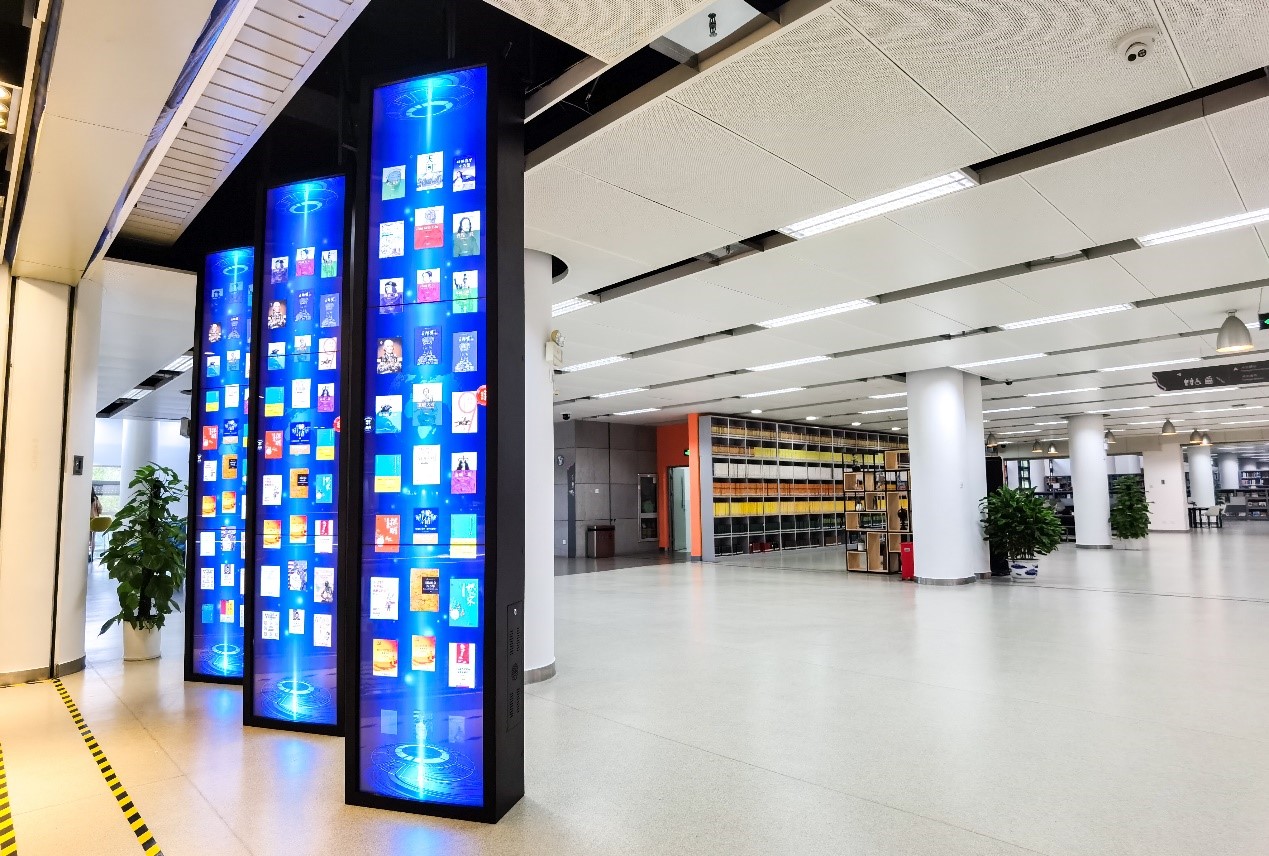The Huawei Developer Conference 2021 (HDC.Cloud 2021) was held from April 24 to 26 in the University Town of Shenzhen, China. This annual ICT developer event brought together the industry's best minds, including thought leaders, Huawei scientists, top technical experts, respected opinion leaders, and highly-skilled developers. True to the event's theme — You make all the difference — the participants actively explored and gained hands-on experience with the latest ICT innovations and best practices across various industries.
As the main venue for HDC.Cloud 2021, the University Town of Shenzhen was integral in ensuring the event's success, capitalizing on the advantages of Huawei's CloudCampus 3.0 Solution for a stable and reliable campus network.
This event was held at the University Town of Shenzhen for the first time. Founded in 2000, the University Town of Shenzhen is the only research-intensive university group in China that is approved by China's Ministry of Education and jointly managed by the local government and top universities. It fosters full-time graduate students and currently has approximately 20,000 students and faculty members.
The University Town of Shenzhen is the first academic institution in China to have built a smart science and education campus with Wi-Fi 6 networking at scale. The university based its strategy on the "Four Ones" philosophy — "one number, one code, one network, and one screen" — creating the ideal ICT platform that efficiently shares resources and flexibly meets the unique needs of universities. This new platform, enabled by a high-quality campus network, ensures that teachers and students alike enjoy borderless services and consistently good user experience throughout the campus.
The same underlying network also contributed to the success of this year's Huawei developer conference. Thanks to its powerful performance, every participant enjoyed convenient, high-speed, and stable network experience at all times, from indoor activities with over 1000 participants to outdoor hands-on labs.
During HDC.Cloud 2021, the keynote speeches and carnival activities were held at the stadium, while multiple summits took place in a lecture hall with over 1000 seats. These on-site events were also broadcast live online, offering participants an exceptional online and offline experience.
More than 1500 people listened to the thought-provoking keynote speeches delivered by industry thought leaders and top developers. Many were sharing memorable moments in real time through social media such as Weibo, TikTok, and WeChat Moments.
The key to making these massive activities run smoothly is a campus network that features fully wireless coverage, ultra-broadband speeds, and intelligent application experience assurance. Huawei's CloudCampus 3.0 Solution delivers just that.
Specifically, the University Town of Shenzhen draws on Huawei's unique 3D wireless network planning tool — WLAN Planner — to quickly model wireless networks and simulate signal coverage, intuitively reflecting the real onsite environment. The end result is optimal deployment and flexible adaptation to complex environments.
Comprising the high-performance Wi-Fi network are Huawei's CloudEngine S12700E, the industry's most powerful ultra-broadband core switch, and Huawei's flagship triple-radio APs, including AirEngine 8760-X1-PRO and AirEngine 6760-X1. This new network is ideal for many scenarios, such as stadiums, lecture halls, and classrooms, offering the ultimate experience for each user, even when there are over 1000 users online all at once.

Dozens of tents were arranged outdoors as hands-on labs, where developers could learn about cutting-edge technology first-hand and experience Huawei's open ICT capabilities in person. Once again Huawei's CloudCampus 3.0 Solution ensured the stable and reliable network necessary for such cloud service-based capabilities.
In particular, Huawei's AirEngine Wi-Fi 6 APs with unique smart antennas deliver over 20% more coverage distance than the industry average. This capability enabled continuous wireless networking outdoors, making sure that every developer could experience the latest tech without interruptions.
The University Town of Shenzhen repurposed its library's open reading space, creating a fully wireless lounge area. During breaks, developers could browse a catalogue of over 700,000 books through the waterfall-stream electronic book borrowing system.
This was possible thanks to the Huawei AirEngine series APs, which provided full Wi-Fi 6 coverage for smart library applications. For example, the library's robots can pinpoint bookshelves and scan books using Radio Frequency Identification (RFID) based on the IoT network; they also use the Wi-Fi 6 network to report information of misplaced books in real time, efficiently counting available books.

Efficient and intelligent network O&M is another key success factor for this year's developer conference. Huawei iMaster NCE-CampusInsight, a campus network analyzer, greatly helps the administrators in the Network Information Center of the University Town of Shenzhen. To elaborate, administrators can predict wireless network problems and obtain network optimization suggestions by using the big data analytics module and expert experience library. They can also quickly adjust the network, for example, performing AP load balancing, adjusting the transmit power, and optimizing channels. iMaster NCE-CampusInsight ensures the optimal application experience for developers by enabling fine-grained O&M, including application visibility, quality awareness, and fault demarcation.

"Since its founding and to date, the University Town of Shenzhen has nurtured a vast number of high-tech innovative talents for Shenzhen's reform and development," said Sun Tao, Director of the Network Information Center, Management Office, University Town of Shenzhen. "Our smart science and education campus has already entered the 2.0 era, with digital innovation, intelligent management, and granular services in full swing. This offers high-quality campus network services and scientific research environments for campus developers, thereby empowering them with higher skills for innovation."